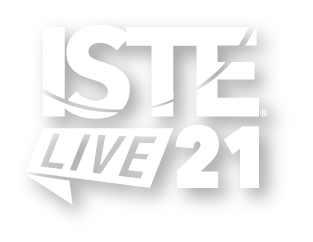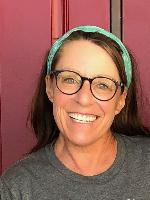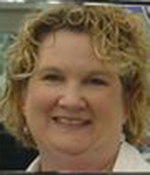

Special Educators’ Experiences From F2F to Virtual During COVID-19 |
Listen and learn : Research paper
Lecture presentation
Research papers are a pairing of two 20 minute presentations followed by a 5 minute Q & A.
This is presentation 1 of 2, scroll down to see more details.
Other presentations in this group:
| Audience: | Teacher education/higher ed faculty, Principals/head teachers, Professional developers |
| Attendee devices: | Devices not needed |
| Topic: | Equity & inclusion |
| Subject area: | Higher education, Special education |
| ISTE Standards: | For Education Leaders: Connected Learner
Collaborator
|
| Additional detail: | ISTE author presentation |
The purpose of this phenomenological study is to gain a deep understanding of the lived experiences of special educators across the U.S. during the pivot to virtual instruction in PK-12 during the Covid-19 pandemic. Special educators serve students with a range of disabilities and the pivot to virtual has been complex (Edyburn, 2020). A phenomenological approach will be used in order to understand the essence of special educators’ transition stories in an effort to gain a more thorough understanding of social and individual challenges faced (Moustakas, 1994; Patton 2002). Data collection will include recorded interviews, focus groups, and optional virtual observations of video instruction of special educators. Initial data analysis will include coding, cross coding, triangulation, and member checking as a means of deeply understanding participant experience and accurately reporting the essence of experience of participants (Moustakas, 1994).
We hope to have a wide cross section of special educators who represent different sub-groups of special education, including, but not limited to, SLP (teletherapy), mild/mod, mod/severe. Those who teach students with cognitive, behavioral, social/emotional, and physical disabilities.
Study findings could provide a voice in the literature regarding the unique experiences of special education teachers during the pivot from F2F to virtual or blended instruction.
This study utilizes recorded interviews, focus groups, and optional virtual observations of participants as valid data sources (Patton, 2002) to understand the essence of experience of special education teachers during the pivot from face-to-face to virtual learning during Covid-19. After bracketing out experiences of the research team, we will employ a transcendental phenomenological approach to analysis of recorded interviews, focus groups, and optional observations of virtual instruction. We will analyze the data coding and cross coding for significant statements, and combining the statements into themes (Moustakas, 1994). Then, we will develop textural descriptions and structural descriptions in order to convey the essence of the experiences.
To ensure methodological and data analytic rigor, we will include field notes and memoing during data triangulation. Participants will be provided with all data pertaining to them, to the initial coding, and to the initial interpretation of the data. Each participant will be invited to provide further context, clarification, or correction of data analysis and reporting. This will provide a holistic, macro-view of participants' experiences in order to better prepare pre-service and in-service teachers for online teaching and learning with an eye towards future worldwide disasters.
The broad source range of expected respondents allowed the researchers to examine how perceptions are similar or different across types of institutions (public, private, various enrollment sizes), preparation focus (special education push in, pull out, self contained), and socio economic variances. We will present the findings and then lead a discussion on how teacher preparation programs and inservice professional development might streamline curriculum and integrate technology in order to better prepare special education teachers for multiple instructional approaches as we are preparing for a future that includes face-to-face, hybrid, and virtual instruction. The results of this research will be shared via conference presentations, publications, and other means such as online webinars. The implications are anticipated to inform special education pre-service educators concerning strengths and gaps in teacher preparation programs and to provide the impetus for professional learning networks to share integration practices.
The results of this research could inform teacher educators and those who develop teacher preparation programs of the complexities of preparing special educators to use technology across multiple modalities. Findings reveal several additional layers of complexity inherent in special education teacher preparation including an overwhelming amount of curriculum to cover (e.g. IDEA, IEP process, disability profiles, working with parents, content expertise, classroom management, etc). Technology integration is considered an “add-on” if it is considered at all.
In an educational system that has been forced to go virtual, the research team sees this as an opportunity to reinvent instructional options that work for all learners.
This study is timely and significant In light of the recent challenges brought to the field of education due to the COVID-19 pandemic. Findings in this study will be used to inform teacher educators and professional development teams In preparing and supporting special education teachers to teach through multiple variety of instructional approaches. We can no longer assume that face-to-face instruction is the only option for our students with disabilities. Due to the complexity of special education instruction, findings in this study will be critical in future teacher preparation programs.
Reference
Blanton, L. P., Pugach, M. C., & Boveda, M. (2018). Interrogating the intersections between general and special education in the history of teacher education reform. Journal of Teacher Education, 69(4), 354–366. https://doi.org/10.1177/0022487118778539
Boot, F. H., Dinsmore, J., Khasnabis, C., & MacLachlan, M. (2017). Intellectual disability and assistive technology: Opening the GATE wider. Frontiers in Public Health, 5(10). https://doi.org/10.3389/fpubh.2017.00010
Council for Exceptional Children. (2020). Special Education Preparation Standards. https://exceptionalchildren.org/special-education-preparation-standards
Courduff, J. (2011). Technology integration in the resource specialist environment. [Unpublished doctoral dissertation]. Walden University.
Courduff, J., & Rockinson-Szapkiw, A. (2015a). Technology integration in the resource specialist program environment: Research-based strategies for technology integration in complex learning environments. Journal of Research in Innovative Teaching, 8(1), 81-98.
Courduff, J., & Rockinson-Szapkiw, A. (2015b, March). Using a community of practice to support technology integration in speech-language pathologist instruction. Journal of Special Education Technology, 30(1), 89-100.
Courduff, J., & Rockinson-Szapkiw, A., & Wendt (2016). Grounded in what works: Exemplary practice in special education teachers’ technology integration. Journal of Special Education Technology, 1(13), https://doi.org/10.1177/0162643416633333
Creswell, J. W. (2007). Qualitative inquiry and research design. Sage.
Edyburn, D. L. (2013). Critical issues in advancing the special education technology evidence base. Exceptional Children, 80(1), 7-24.
Edyburn, D. L. (2014). What technology trends could significantly alter the future of special education. Handbook of research and practice for effective inclusive schools, 451-462.
Edyburn, D. L. (2020). Assistive technology rapid literature review. Knowledge by Design. https://www.knowledge-by-design.com/ukat/index.html
Ed Data Inventory (2020). https://datainventory.ed.gov/
Glass, P. K. (2020, September, 1). Staying within law: Special education teachers and IDEA. https://theeducatorsroom.com/staying-within-law-special-education-teachers-and-idea/
Gomez-Navarro, J. (2020). An empty seat at the table: Examining general and special education teacher collaboration in response to intervention. Teacher Education and Special Education, 43(2), 109-126.
Karlsson, P., Johnston, C., & Barker, K. (2018). Influences on students’ assistive technology use at school: The views of classroom teachers, allied health professionals, students with cerebral palsy and their parents. Disability and Rehabilitation: Assistive Technology, 13(8), 763-771.
Kim, J. (2016). Narrative data analysis and interpretation. In Kim, J. Understanding narrative inquiry, 184-225. Sage. https://doi.org 10.4135/9781071802861
Redford, K. (2019). Assistive Technology: Promises Fulfilled. Educational Leadership, 76(5), 70-74.
Smith-Chandler, N., & Swart, E. (2014). In their own voices: Methodological considerations in narrative disability research. Qualitative Health Research, 24(3), 420-430.
Moustakas, C. (1994). Phenomenological research methods. Sage
National Center for Education Statistics (2019). The condition of education. https://nces.ed.gov/pubsearch/pubsinfo.asp?pubid=2019144
Patton, M. Q. (1990). Qualitative evaluation methods (2nd ed.). Sage.
Patton, M.Q. (2002). Qualitative research & evaluation methods (3rd ed.). Sage.
Thomas, C. N., Peeples, K. N., Kennedy, M. J., & Decker, M. (2019). Riding the special education technology wave: Policy, obstacles, recommendations, actionable ideas, and resources. Intervention in School and Clinic, 54(5), 295-303.

I’ve been teaching at North Carolina State University for over 25 years, including almost 15 years of teaching online in some form or another. My Ph.D. is in Foundations of Education from UNC Chapel Hill, so I come at technology entirely from the humanities. My research is in the history of education, online teaching and collaboration, and pre-service teacher beliefs. I’ve been on the ISTE TEN leadership team for several years, usually participating heavily in the ISTE TEN Playground. Occasionally, I like to make short class videos using puppets.

Dr. Jennifer Courduff is a Professor of Education at Azusa Pacific University where she develops courses and teaches in the Master of Arts: Learning and Technology program. She is an active member of the International Society for Technology in Education (ISTE), and advocates for the needs of special education teachers in several professional learning communities. Her research and presentations focus on technology integration within inclusive learning environments and mobile learning.

Dr. Dennis McElroy is Professor Emeritus from Graceland University in Lamoni, Iowa. He is the 2020-21 ISTE Teacher Education Network PLN President. Dennis is an Apple Educator, technology advocate, and passionate teacher educator. His career has included time serving as a high school science teacher, technology director, Iowa DOE technology consultant, school board member, and university professor. In his free time he is a devoted father and grandfather as well as a gigging musician.

Dr. Jean Kiekel received her PhD from Kansas State University in Curriculum and Instruction. She is currently the Field Placement Director at the University of St Thomas. She has developed an online master's program in Instructional Technology at the university which will be a track under the C&I Master's degree program at UST. Her current research interests include instructional technology in K-12 classrooms, online learning, and teacher induction,

How To Deliver the Best Asynchronous Learning Experience
Supporting Social and Emotional Learning With Microsoft Tools
Top 10 Google Add-Ons You Wish You Knew About Earlier!